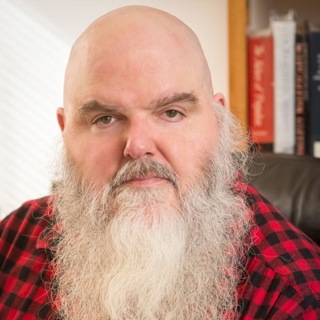
The Interpersonal Psychoanalytic Approach to Working with Veterans - Andrew Berry.
Veterans come home from war with shifted personalities, survival guilt after having lost comrades in battle, denial of feelings and shattered selves. A holding environment of safety if they ever had one is lost. How can a clinician gain the veteran’s trust and create the transitional space necessary for therapy that heals? In this podcast we will listen to Andrew Berry’s paper “The Interpersonal Psychoanalytic Approach to Working with Veterans where he takes a view of war veterans from an interpersonal perspective by seeking the deeper psychological meaning of posttraumatic stress disorder or PTSD. Exploring the veterans ‘relationships with others, provides meaning without which healing cannot be attained. Andrew Berry holds a Ph.D., and a Psy.D. in psychology. He practices as a psychologist and psychoanalyst in Niskayuna, New York. He specializes in PTSD and other mental health needs of veterans. He has published on this topic and lectures at analytic institutes, and both national and international conferences. He completed a for year psychoanalytic program from the William Alanson White Institute in New York City in 2012. Link to the original paper, published in Division Review. A Quarterly Psychoanalytic Forum in 2018. https://pep-web.org/search?preview=DR.018.0040A&q=Berry This Podcast Series, published by the International Psychoanalytical Association, is part of the activities of the IPA Communication Committee and is produced by the IPA Podcast Editorial Team. Head of the Podcast Editorial Team is Gaetano Pellegrini. Editing and Postproduction: Massimiliano Guerrieri.
3 Okt 202220min
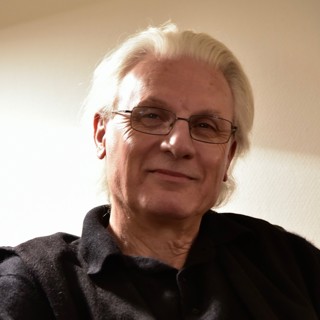
The Impact Of Reality On The Psychoanalytical treatment - Bernard Chervet.
The impact of reality on the psychoanalytical treatment and on the work of renunciation of the patient and the analyst. Which realities are involved in the cure? In this episode Bernard Chervet talks about the impact of reality on psychoanalytic treatment. In light of recent contexts of the global pandemic and upheavals it has caused, Bernard Chervet offers us a theoretical exploration of different notions of reality which confront the analyst. By redefining the terms intrusion, irruption and break-in, and by showing the correlation between internal and external realities, he explains how a traumatic external reality bursting into the treatment re-enacts infantile sexuality from childhood when the difference between the sexes was discovered. He shows us how the analyst, guardian of psychic life, must take all these realities into account in his work with his patients. The analyst must respect and even favour a time of immobilisation and temporary denial linked to a shock without losing sight of resuming the analytical process in a second phase in order to achieve a regeneration of the libido, the very objective of dream work and session work. Bernard Chervet is a French psychiatrist and psychoanalyst. He lives and works in Paris and Lyon. He is a training psychoanalyst of the Psychoanalytic Society of Paris (SPP), he was a Former President of the SPP. He is a representative on the IPA Board and on the IPA Executive Committee. He is Scientific Director of the Congress of French speaking Psychoanalysts (CPLF), Founder of SPP Editions and he has authored numerous publications in French and international journals. He was the winner of the french Maurice Bouvet Prize in 2018 for his complete works. As the key-note speaker at the CPLF on the theme "Après-coup", he is the author of “Après-coup in Psychoanalysis: The Fulfilment of Desire and Thought” (to be published in 2022 by Routledge). Finally, he is also contributor to the IPA encyclopedic dictionary. A subtitled version of this podcast is available on our YouTube channel: https://youtube.com/playlist?list=PLhxiwE76e0QaOquX3GujdwNLFsgxUQNXz&si=yf381EDu3pess6Yz This episode has been produced in collaboration with Julia-Flore Alibert. This Podcast Series, published by the International Psychoanalytical Association, is part of the activities of the IPA Communication Committee and is produced by the IPA Podcast Editorial Team. Head of the Podcast Editorial Team: Gaetano Pellegrini. Editing and Post-Production: Massimiliano Guerrieri. Link to the paper https://docs.google.com/document/d/1ixWEPk_P7UaIBlGDwM2OtHEM-MzTSZ5l/edit?usp=sharing&ouid=112457875385152358388&rtpof=true&sd=true This episode is available also in French References: Chervet, B. (2022) The Case of J: Returning to the Office. International Journal of Psychoanalysis 103:518-523 Chervet, B. (2021) The Traumatic and the Work of the Après-Coup in Freud’s Opus. International Journal of Psychoanalysis 102:765-777 Chervet, B. (2020) The case of J: Working as a psychoanalyst during the Pandemic. International Journal of Psychoanalysis 101:784-790 Chervet, B. (2013) André Green 1927-2012: An Artisan of the Future. International Journal of Psychoanalysis 94:157-166 Chervet, B. (2010) La tentation psychotique [The Psychotic Temptation] by Liliane Abensour Presses Universitaires de France, Paris, 2008; 206 pp.. International Journal of Psychoanalysis 91:448-454 Bernard Chervet: Eros idealized and the life drive de-idealized. Session work and the reference to an ideal psychic functioning Pre published papers 2022 — 6 juil. 2022 Bernard Chervet: Which Reality Testing for Psychoanalysis in the Post-Truth Era? From Kettle Logic to the Witch Trial — 1 Dec. 2021 Bernard Chervet: The Après-Coup: Form and Formlessness in Dream-Work and Unconscious Formations. The Formal Regression to Formlessness and the Manufacturer of Forms - from Bulletin 67, 2013 — 5 Nov. 2020 Bernard Chervet: Sensual Regression and Emergence of Erotogenicity Following Sensual Regression Within Sessions Bulletin 73, 2019 — 19 Nov. 2019 Bernard Chervet: The paths (x) of authority or How can psychoanalysts lack judgement ? 13 Feb. 2016 Bernard Chervet: Too Much … Too Little … Two Reminiscences of the Traumatic Dimension in Psychoanalytic Sessions Bulletin 69, 2015 (Page 125-137) — 1 Aug. 2015 Bernard Chervet: The Après-Coup: Form and Formlessness in Dream-Work and Unconscious Formations. The Formal Regression to Formlessness and the Manufacturer of Forms Page 79-89 — 1 Oct. 2013 Bernard Chervet: Opening Speech, Paris Psychoanalytic Society Page 11-12 — 14 Jan. 2013 Bernard Chervet: The french model’s three-sessions-a-week treatment frame. Neither too much, nor not enough EPF ; 25° Annual Conference. March the 28th 2012 Bernard Chervet: Eros idealized and the life drive de-idealized. Session work and the reference to an ideal psychic functioning. 2022 Bernard Chervet: Éros idéalisé et pulsion de vie désidéalisée. Le travail de séance et la référence à un fonctionnement psychique idéal. 2022 Psychoanalysis and Covidian life – common distress, individual experience edited in French, English and Portuguese by H. B. Levine and A. de Staal, Bicester, Phoenix Publishing House, 2021, 288 pp., ISBN 978-1912691777
12 Sep 202235min

Contributions for a theory of the constitution of the cruel superego - Marion Minerbo
In this episode dr. Marion Minerbo brings us an original hypothesis about the constitution of the cruel superego – the one that, according to Freud, plants its roots in the id and is pure culture of the death drive. In her hypothesis, the hatred with which the superego attacks the ego comes from the identification with unconscious micro-vows of death that originate in the paranoid core of the parental figure. She proposes a formula that helps us to recognize that these attacks have the function of defending the parental figure's narcissism: “it's not me who... it's you who... and I hate you for that”. Within an asymmetrical relationship with the adult, the child has no alternative but to accept these beta-elements and identify with them. These identifications would then constitute the core of the cruel superego. In the original paper, she shows how these hypotheses about how the superego is constituted helps us in finding a way for its deconstruction . Marion Minerbo, MD, PhD, is a full member and training analyst at the Brazilian Psychoanalytic Society of São Paulo. She has published dozens of articles and the following books: "Conversations on clinical practice"; "New conversations on psychoanalytical practice”; "Neurosis and non-neurosis”; "Transference and Countertransference"; "A posteriori, a journey", all by Blucher Editorial, São Paulo, all of which published in Portuguese. In 2015, at the Brazilian Congress of Psychoanalysis, she received the main award for this paper: the Durval Marcondes Award. This episode is available also in Portuguese https://anchor.fm/talksonpsychoanalysis-por/episodes/Contribuies-para-uma-teoria-sobre-a-constituio-do-supereu-cruel----Marion-Minerbo-e1mv0hm
25 Aug 202223min
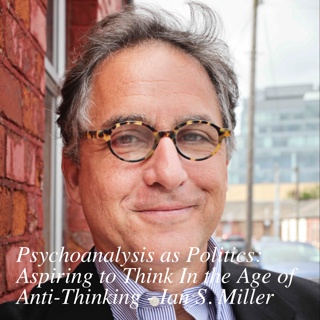
Psychoanalysis as Politics: Aspiring to Think In the Age of Anti-Thinking - Ian S. Miller
This podcast discusses the political nature of psychoanalytic audacity in our era of fake news and disinformation. Today, gullible populations accustom themselves to the lies and misrepresentations of anti-thinking, often through the rumor-mills of social media, where any and every thought, no matter how bizarre, is leveled to an equality of consideration (Frankfurt, 2005; Hayden, 2018; Lipton, 2018; Miller, 2018). Opposed to this flattening of critical meaning, is the psychoanalytic model of enlightenment through mobilization of creative thinking. Ian S. Miller is a clinical psychologist/psychoanalyst and writer based in Dublin. His most recent book is Clinical Spinoza: Integrating his Philosophy with Contemporary Therapeutic Practice (Routledge, 2022). He is also the author of Defining Psychoanalysis: Achieving a Vernacular Expression (Karnac, 2016); On Minding and Being Minded: Experiencing Bion & Beckett (Karnac, 2015); and co-author of Beckett and Bion: The (Im)patient Voice in Psychotherapy and Literature (Karnac, 2013) as well as On the Daily Work of Psychoanalytic Psychotherapy (Routledge, 2018). He serves as Associate Editor on the American Journal of Psychoanalysis. Link to the paper https://docs.google.com/document/d/1MFzT5Mr5XOcf8nSkZqLC6piT3qU-_Q0o/edit?usp=sharing&ouid=112457875385152358388&rtpof=true&sd=true
30 Jun 202215min
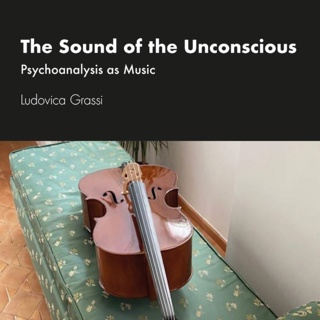
Ludovica Grassi - Music, Silence and Psychoanalysis
A few musical passages serve as examples of how music is a basic component of psychic life and unconscious functioning since the earliest sensorial experiences in utero. Both music and the psyche work through similar mechanisms such as repetition, imitation, variation (transformation), intimacy and the work of mourning, of the negative and of nostalgia. Silence and absence, as well as time and temporality, are key elements both in music and in symbolization and subjectivation processes. Viewing music as a primal and inherent characteristic of psychic structure and functioning allows both a better understanding of somato-psychic development and a musically informed psychoanalytic listening. Ludovica Grassi is a child neuro-psychiatrist, a full member of the Italian Society of Psychoanalysis, a qualified expert in child and adolescent psychoanalysis, and a psychoanalyst of couples and families. She is currently Treasurer of the Italian Psychoanalytic Society. Her main scholarly interests are infant psychoanalysis, ethno-psychoanalysis, and the role of music in psychic development. She has written on these topics as well as on individual, couple and family psychoanalysis. Her book The Sound of the Unconscious: Psychoanalysis as Music was published by IPA in June 2021. Link to the paper https://docs.google.com/document/d/1mlfvAq3ejz6VsMGOxaWj1KICinvJIsB_/edit?usp=sharing&ouid=112457875385152358388&rtpof=true&sd=true This episode is available also in Italian CREDITS This podcast series, published by the International Psychoanalytical Association, is part of the activities of the IPA Communication Committee and is produced by the IPA Podcast Editorial Team. Head of the Podcast Editorial Team is Gaetano Pellegrini. Editing and Post-Production: Massimiliano Guerrieri
16 Mai 202224min
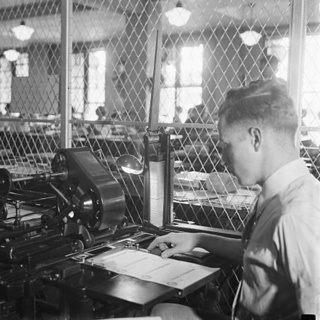
Christophe Dejours - Sublimation between Suffering and Pleasure at Work
In this episode "Sublimation between suffering and pleasure at work", Christophe Dejours develops his theses on the psychodynamics of work, which he has particularly deepened. He examines the work clinic from the angle of sublimation, which he breaks down into «bodypropriation», relationship to the other and relationship to civilisation; sublimation operates in all work, even the most ordinary; it has a powerful effect on identity and mental health. Christophe Dejours shows how certain work organisations, by undermining the subjective springs of sublimation, can destabilise the individual and lead him to a psychological crisis or even to suicide. Finally, he shows how much, according to him, living work - that is to say work enriched by what the subject adds to the prescriptions to achieve objectives - plays an essential role in the structuring and destructuring of the social link. Christophe Dejours is a psychiatrist, a psychoanalyst, a full member and Training Analyst of the French Psychoanalytical Association and a full member of the Institute of Psychosomatics of Paris, professor emeritus of the University of Paris Nanterre and president of the scientific council of the Jean Laplanche Foundation - Institute of France. Research on the frontiers of psychoanalysis: on the side of the biological sciences with psychosomatics and the metapsychology of the body. Worked with Pierre Marty and Michel Fain; on the side of the social sciences with the work clinic. Founded a new discipline: the psychodynamics of work taught in France and in several European countries, in Canada and in Latin America (Brazil, Argentina, Chile, Uruguay, Mexico) Research on sexual theory, in collaboration with Jean Laplanche (between 1997 and 2012), in particular on the introduction of gender in sexual theory, on dream work, on the formation of an unrepressed unconscious and a topicality of cleavage. He has written numerous articles and books, to name but a few: DEJOURS C. (2015): 'PSYCHOPATHOLOGY OF WORK: Clinical Observations', Karnac Books, London, 102 pages. DEJOURS C (2019): 'The Two Bodies: The Biological Body and the Erotic Body'. Psychoanalysis in Europe, 73: 16-27 DEJOURS C (2020): 'Psychoanalysis and the Genealogy of the Erogenous Body' Psychoanalysis.today, 12: The Body and Psychoanalysis. https://www.psychoanalysis.today/fr-FR/Home.aspx Link to the paper https://docs.google.com/document/d/1BOOrx4U9wo-Z5IP7h4boMO5WnCHVJNtI/edit?usp=sharing&ouid=112457875385152358388&rtpof=true&sd=true CREDITS This podcast series, published by the International Psychoanalytical Association, is part of the activities of the IPA Communication Committee and is produced by the IPA Podcast Editorial Team. Head of the Podcast Editorial Team is Gaetano Pellegrini. Editing and Post-Production: Massimiliano Guerrieri Music: Chopin_Waltzes_Op.69. Performer Olga Gurevich. https://musopen.org/music/4415-waltzes-op-69/ Cover Image: Office work, Harris Ewing photographer, 1936, United States. Courtesy Library of Congress Prints and Photographs Division Washington, D.C. 20540 USA https://www.loc.gov/resource/hec.40970/ THIS EPISODE IS AVAILABLE ALSO IN FRENCH
4 Mai 202249min
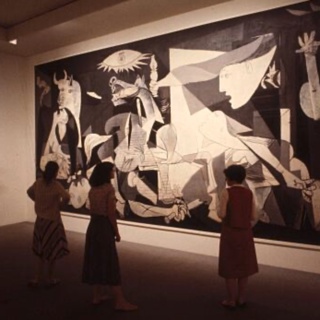
Werner Bohleber: Trauma - Catastrophic Reality and the Overwhelmed Psyche.
"Guernica" by Picasso at MOMA, NYC. Gotfryd, Bernard, photographer. Courtesy Library of Congress. What happens when our basic trust in the world is challenged, and the social dimension of reality is disrupted as a consequence of collective trauma? In this episode, Werner Bohleber addresses the theme of traumatic experiences and does so starting from the two main models around which psychoanalytic thought has sought to understand trauma: the freudian psycho-economic model and the object-relational model. Reflecting on what he so effectively defines as "the symbolic web that carries us", Bohleber considers the implications of man-made disasters, and those that befall our individual and collective memory. Werner Bohleber, Dr. phil, is a psychoanalyst in private practice in Frankfurt am Main. He is training analyst and former President of the German Psychoanalytical Association. He has long served on committees of the IPA, the last from 2009-2013 as Chair of the IPA Committee on Conceptual Integration. From 1997 to 2017 he was main editor of the journal PSYCHE. His research subjects and main publication themes are: late adolescence and young adulthood; psychoanalytic theory; transgenerational consequences of the Nazi period and the war on the second and third generation; nationalism, terrorism, anti-Semitism; trauma research. In 2007, he was awarded the Mary S. Sigourney Award for his diverse contributions, especially those relating to the traumatic aftermath of the Holocaust, National Socialism, and World War II. link to the paper https://docs.google.com/document/d/18yMyiZ6darmN6ouxVoQmUwlci44UCnCQ/edit?usp=sharing&ouid=112457875385152358388&rtpof=true&sd=true this episode is available also in German Bibliography Allen, J. (2013). Mentalizing in the development and treatment of attachment trauma. London: Karnac. Amery J. (1996): Die Tortur. Merkur, 50, 502-515. Balint M (1969). Trauma and object relationship. Int. J. Psycho-Anal. 50: 429-36. Baranger M, Baranger W, Mom JM (1988). The infantile psychic trauma from us to Freud: Pure trauma, retroactivity and reconstruction. Int. J. Psycho-Anal. 69: 113-28. Bohleber, W (2010). Destructiveness, Intersubjectivity, and Trauma. The Identity Crisis of Modern Psychoanalysis. London: Karnac. Cooper, A. (1986), Toward a limited definition of psychic trauma. In: The Reconstruction of Trauma. Its Significance in Clinical Work, ed. A. Rothstein. Madison, CT: International Universities Press, pp. 41-56. Erikson E.H. (1968): Identity. Youth and crisis. Nem York: Norton. Ferenczi S (1949). Confusion of the tongues between the adults and the child [1933]. Int. J. Psycho-Anal. 30: 225-30. Freud S (1920). Beyond the pleasure principle. Standard Edition 18, p. 7-64 Freud S (1926). Inhibitions, symptoms and anxiety. Standard Edition 20, p. 77-174. Freud S. (1939). Moses and Monotheistism. SE 23: 1-138. (GW 16: 103–246) Garland, C. (1998). Thinking about trauma. In: Garland, C. (Hg.). Understanding trauma. A psychoanalytic approach. London (Karnac). Krystal, H. (1988). Integration and Self-Healing. Affect, Trauma, Alexithymia. Hillsdale: Analytic Press. Langer L.L. (1995): Memory’s time: Chronology and duration in Holocaust testimonies. In: Langer, L.L.: Admitting the Holocaust: Collected essays. New York/Oxford: John Hopkins University Press, pp.13-23. Leys R. (2000). Trauma: A genealogy. Chicago, Ill.: University of Chicago Press. Morris D. J. (2015): The evil hours. A biography of post-traumatic stress disorder. Boston/New York: Houghton Mifflin Harcourt. Oliner M. (2012): Psychic reality in context. Perspectives on psychoanalysis, personal history, and trauma. London: Karnac Shalev A.Y. (1996), Stress Versus Traumatic stress. From Acute Homeostatic Reactions to Chronic Psychopathology. In: Traumatic Stress. The Effects of Overwhelming Experience on Mind, Body and Society, ed. B. van der Kolk, A., Mc Farlane & L.Weisaeth. New York NY: Guilford Press, pp. 77-101. Steele BF (1994). Psychoanalysis and the maltreatment of children. J. Amer. Psychoanal. Assn. 42: 1001-25. Van der Kolk B. (1996). Trauma and memory. In: B. van der Kolk, B., A. McFarlane & L. Weisath (Eds.) Traumatic stress. The effects of overwhelming experience on mind, body and society. New York: Guilford Press, pp. 279-302. van der Kolk B. (2014): The body keeps the score. Mind, brain, and the body in the healing of trauma London: Penguin Books. CREDITS Editing: Agustín Ruiz Brussain
4 Apr 202231min

Nancy Chodorow - “Thoughts for the times on women and men”.
Thoreau's cove, Lake Walden, Concord, Mass., Detroit Publishing Co., publisher, between 1900 and 1910. Courtesy Library of Congress. Nancy Chodorow is Training and Supervising Analyst Emerita, Boston Psychoanalytic Society and Institute, Lecturer Part-time in Psychiatry at the Harvard Medical School/Cambridge Health Alliance, and Professor of Sociology Emerita, University of California, Berkeley. At UC Berkeley, she helped to create Women's Studies and was a co-founder of the University of California Interdisciplinary Psychoanalytic Consortium. She serves on the Holmes Commission on Racial Equality of the American Psychoanalytic Association and the Research Committee of the IPA, and she was recently Advisor to the Sexual and Gender Diversities Studies Committee of the IPA. Chodorow has written on psychoanalysis and feminism, Loewald and the Loewaldian tradition, and psyche and society, recently naming an American Independent Tradition, Intersubjective Ego Psychology, whose founding theorists are Loewald and Erikson. Her books include The Reproduction of Mothering; Feminism and Psychoanalytic Theory; Femininities, Masculinities, Sexualities; The Power of Feelings: Personal Meaning in Psychoanalysis, Gender and Culture; Individualizing Gender and Sexuality; and The Psychoanalytic Ear and the Sociological Eye: Toward an American Independent Tradition. Her books include The Reproduction of Mothering; Feminism and Psychoanalytic Theory; Femininities, Masculinities, Sexualities; The Power of Feelings: Personal Meaning in Psychoanalysis, Gender and Culture; Individualizing Gender and Sexuality; and The Psychoanalytic Ear and the Sociological Eye: Toward an American Independent Tradition. A book in her honor, Nancy Chodorow and The Reproduction of Mothering: 40 Years On (Bueskens, ed.) was published in 2020. Chodorow's podcast draws on her writings on individualizing gender and sexuality, masculinities, and Freud's social writings, and on her research on early women psychoanalysts.
15 Mar 202215min





















